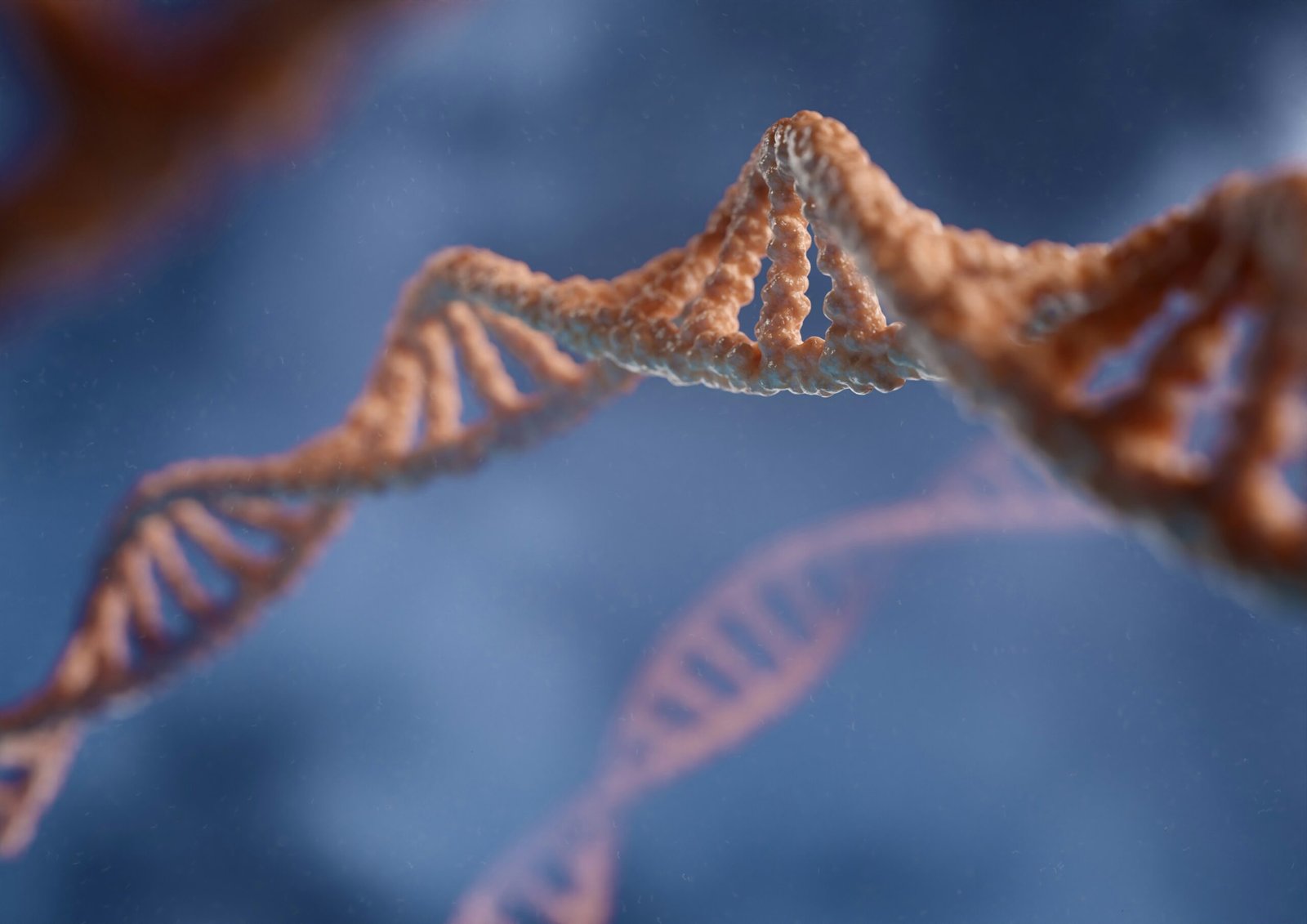What is Gene Cloning
Gene cloning is a cornerstone of modern biotechnology, enabling scientists to replicate specific segments of DNA and facilitate the detailed study of genetic material. The process begins with DNA extraction, where a precise segment of the DNA is isolated from a host organism, ensuring that any desired genes can be manipulated. Subsequent steps include restriction enzyme digestion, wherein enzymes are utilized to cut the DNA at specific sequences. This creates fragments that can be more easily managed and inserted into vectors.
Vectors, often plasmids, play a crucial role in gene cloning. These circular DNA molecules are engineered to carry foreign DNA into host cells, allowing for the expression or replication of the targeted gene. The combination of the restriction enzyme and vector systems is integral to the cloning process, ensuring that the gene of interest is inserted correctly and can function within the new organism. Historically, the development of gene cloning technology traces back to the 1970s, with significant milestones that include the creation of recombinant DNA techniques and the first successful cloning of a mammalian gene.
The implications of gene cloning in agriculture are profound. As the demand for sustainable agricultural practices continues to grow, gene cloning allows for the enhancement of crop traits, such as pest resistance, drought tolerance, and improved nutritional content. By utilizing cloning techniques, scientists can introduce beneficial genes into major crops, promoting yield and resilience against environmental stresses. Ensuring food security and enhancing agricultural productivity through such biotechnological advancements marks a pivotal shift towards sustainable farming, highlighting the importance of gene cloning in modern agriculture.
Applications of Gene Cloning in Agriculture
Gene cloning technology has emerged as a pivotal tool in agricultural biotechnology, facilitating the development of genetically modified organisms (GMOs) that exhibit enhanced traits crucial for modern farming. One significant application is the creation of pest-resistant crops. For instance, Bt cotton, which carries a gene from the bacterium Bacillus thuringiensis, enables the plant to produce a protein that is toxic to specific pests. This genetic modification reduces the reliance on chemical pesticides, promoting a more environmentally sustainable approach to pest management while improving crop yield and farmers’ livelihoods.
Another critical application of gene cloning is in developing drought-tolerant crops. As climate change poses severe threats to agricultural productivity, crops engineered through gene cloning to withstand water scarcity are becoming increasingly important. These crops utilize mechanisms that enable them to conserve water and maintain productivity during periods of low rainfall, thus ensuring food supply stability even in challenging conditions.
Enhancing the nutritional profiles of staple crops represents a third application of gene cloning. A notable example is Golden Rice, which has been genetically engineered to produce beta-carotene, a precursor of vitamin A. This innovation aims to combat malnutrition, particularly in developing countries where rice is a dietary staple and vitamin A deficiency is prevalent. The introduction of such crops not only addresses nutritional deficiencies but also ensures that agricultural practices align with improving public health outcomes.
In addition to these specific applications, gene cloning plays a vital role in driving overall agricultural productivity. By introducing resilience features into crops, gene cloning contributes to a more robust food system capable of adapting to the unpredictable nature of climate change. As we face ongoing population growth and the corresponding demand for food, the advancements enabled by gene cloning will be essential to sustaining global food security.
Ethical and Environmental Considerations
As gene cloning technology finds increasing application in agriculture, it raises a range of ethical and environmental considerations that must be critically assessed. One prominent concern revolves around public perceptions of genetically modified organisms (GMOs). Many consumers harbor skepticism and apprehensions regarding the safety of GMOs, often fueled by misinformation and a lack of understanding of the science behind genetic engineering. Public sentiment can vary widely, with some advocating for the benefits of enhanced crop yields and resilience, while others highlight potential risks to health and the environment.
The debate surrounding gene editing technologies also intensifies the ethical dilemmas involved in agricultural biotechnology. Critics argue that manipulating plant genetics could lead to unintended consequences, such as the potential disruption of ecosystems and loss of biodiversity. For instance, the introduction of genetically modified crops could affect local flora and fauna, leading to unforeseen ecological shifts. The loss of traditional crop varieties due to the predominance of genetically engineered species is another serious concern that needs to be addressed.
Regulatory frameworks play a vital role in shaping the ethical landscape of gene cloning in agriculture. Governments and international organizations have established guidelines to regulate the deployment of biotechnology, ensuring that genetically modified crops are subjected to rigorous safety assessments before they reach the market. This ensures that the benefits of agricultural innovation do not come at an unacceptable risk to human health or environmental stability. Moreover, continuous monitoring is crucial as agricultural practices evolve. Transparency in the regulatory process is essential to foster public trust, which is a key element in the successful integration of gene cloning technologies into sustainable agriculture.
In conclusion, navigating the ethical and environmental implications of gene cloning in agriculture requires a commitment to responsible practices. Balancing innovation with ecological integrity is paramount to ensuring both public trust and the health of our ecosystems.
The Future of Gene Cloning in Agricultural Biotechnology
The field of agricultural biotechnology is on the brink of a revolutionary transformation, primarily driven by advancements in gene cloning technologies. As the global population continues to rise, the demand for robust agricultural production intensifies. The emergence of innovative tools such as CRISPR gene editing and synthetic biology presents promising avenues for enhancing crop development and resilience. These technologies allow for precise modifications of plant genomes, facilitating the introduction of beneficial traits that can yield higher production while reducing reliance on chemical inputs.
CRISPR, a game-changing technology, simplifies the process of gene editing, making it faster, more accurate, and cost-effective compared to traditional methods. By employing CRISPR for gene cloning, researchers can efficiently target genetic sequences associated with desirable characteristics, such as disease resistance or drought tolerance. This capability is essential in addressing pressing global challenges including food shortages and climate change, ensuring that crops can thrive in increasingly hostile environments.
Furthermore, synthetic biology, which integrates biological sciences with engineering principles, holds the potential to create entirely new varieties of crops tailored to specific ecological demands. This approach can lead to the development of crops that not only produce higher yields but also exhibit traits that promote sustainability, such as reduced water usage and enhanced nutrient uptake.
To maximize the benefits of gene cloning technologies while navigating the ethical landscape, a collaborative effort among scientists, policymakers, and farmers is crucial. By ensuring that the advancements in gene cloning are employed responsibly and ethically, stakeholders can contribute to a sustainable agricultural framework that prioritizes food security and environmental conservation. As we move forward into this new era of agricultural biotechnology, it is imperative that innovation is balanced with ethical considerations, ultimately leading to a more secure and sustainable future for global agriculture.



